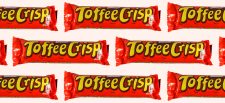Reports show that food fraud could cost the food and drink industry up to £12 billion annually, with 72% of consumers believing there is an issue with fraud nationwide.
The NFU Mutual Food Fraud Report holds responses from over 2,000 British consumers, and results show that 27% of British consumers say they have experienced food fraud.
Food fraud includes the deliberate and intentional substitution, addition, tampering with or misrepresentation of food, ingredients or packaging at some stage of the product’s distribution cycle.
It can also mean false or misleading statements made about a product for economic gain.
Results show that 33% of people say they are less trusting of products and retailers than they were five years ago.
Consumers say they trust ‘far-fetched claims about benefits’ and ‘labels in different languages’ the least.
This encouraged British marketplace OnBuy.com to highlight the food product features consumers reportedly trust the least.
To achieve this, OnBuy analysed research from the Food Fraud Report in detail.
OnBuy found that ‘poor quality packaging’ (34%) and an ‘unknown brand’ (33%) received high results, alongside ‘sparse labelling or text’ at 28%.
Results also found that 24% of consumers mistrust a ‘non-British product’, while 23% would be put-off by a ‘cheap price.’
Further to this, the research found that 70% of ‘foodies’ take at least some measures to ensure their food is legitimate, with 39% of consumers regularly reading the ingredients on products and 35% reading the front label in detail.
However, 17% of people will avoid food types they believe to be susceptible to fraud (such as takeaways) as well as 9% regularly research products online before they make a purchase.
Only 3% of consumers state they do not trust a ‘British product’, which is said to be a promising sign for businesses to thrive on home soil come Brexit.









